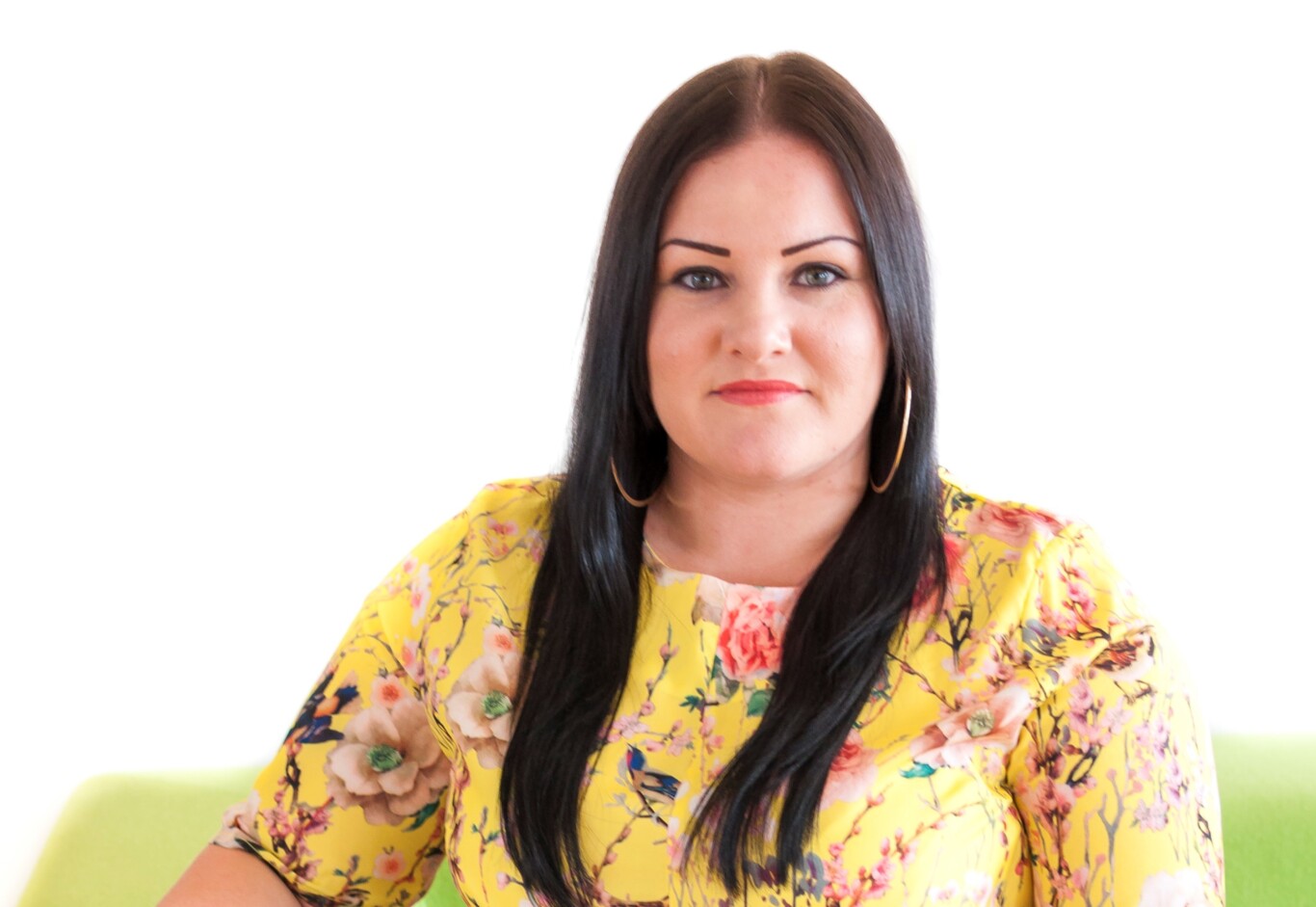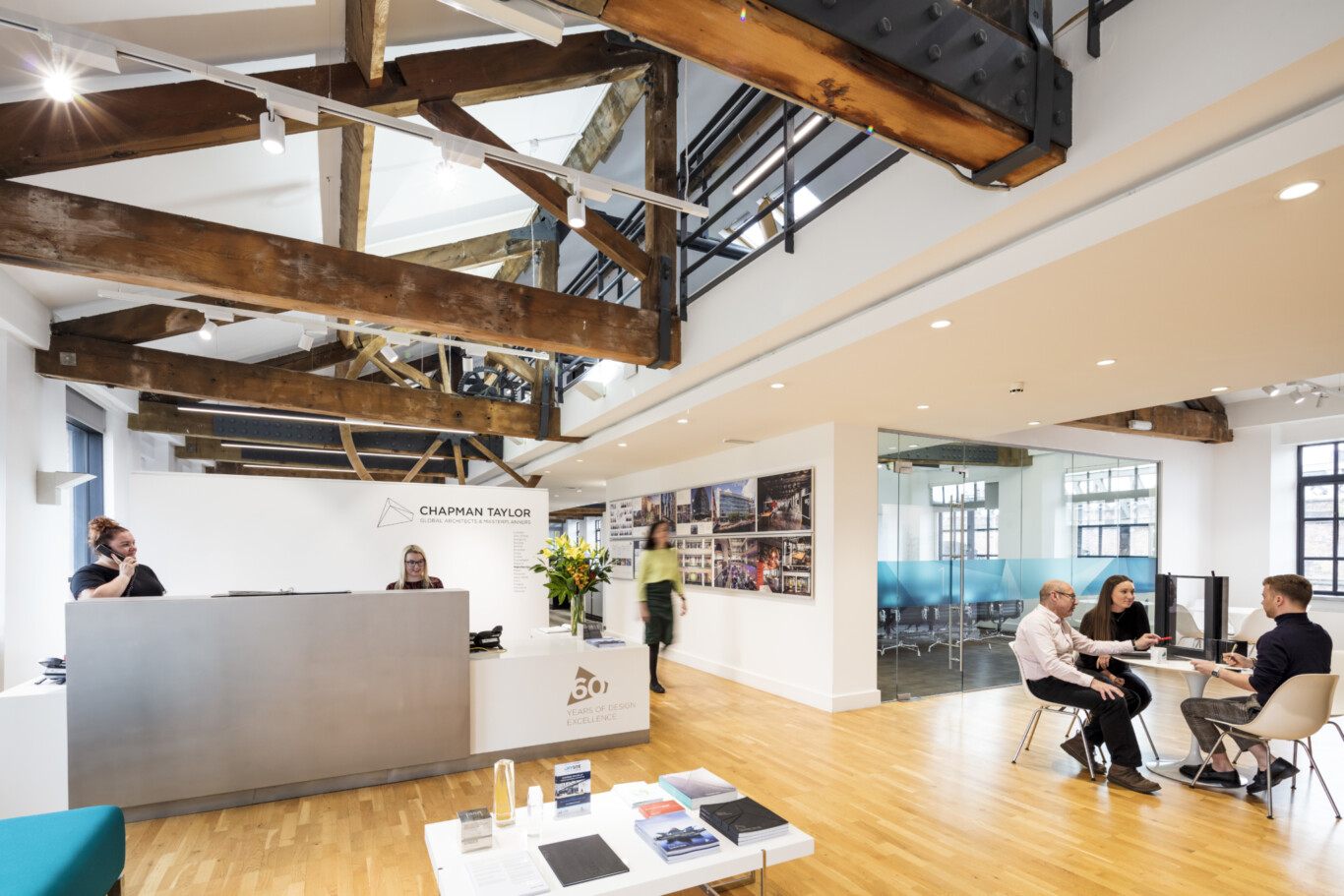
People Profile: Manchester Office Administrator Gemma Crossley on growing in confidence within a supportive team environment
Gemma Crossley joined Chapman Taylor’s Manchester studio in 2006 and plays a key role in enabling the studio to function efficiently in her position as Office Administrator. Gemma’s is one of the many non-architectural roles across the international Chapman Taylor Group which are crucial to the success of the business and which allow our creatives the time and space in which to concentrate on producing their best work. In this profile, Gemma talks to us about how the welcoming and supportive atmosphere at Chapman Taylor’s Manchester studio was a revelation to her after a previous, toxic, working environment and about how she has grown in confidence and expanded her capabilities as a result of the encouragement she has received there.
Tell us about your background and how you came to be at Chapman Taylor.
I come from Clayton, just to the east of Manchester city centre, and I went to primary school there before going to secondary school in nearby Gorton. I then studied for a BTEC in Beauty Therapy at Ashton College; I loved the first year, which was all about the practical side, but I did not enjoy the second year, which was all written work, so I quit the course. On hearing this, my mother told me that, if I wasn’t going to continue studying, I shouldn’t expect her to keep paying for me! That moment of tough love prompted a frantic job search, which led me to my first job, as an office junior at a firm in central Manchester.
I worked with that company for a few years, but my overriding memory was the toxic work environment, where I was constantly criticised for trivial things and put in a state of fear every day. In the end, this led to me having a panic attack in the middle of the office, in front of my colleagues. That was the catalyst for me deciding to leave and to find somewhere better to work.
I applied for two jobs: one with a police forensics unit near my home and the other here at Chapman Taylor as an Office Junior. I heard back from Chapman Taylor first and, 15 years later, I am still here!
Having been through that traumatic experience in your previous job, what were your first days and weeks with Chapman Taylor like, by comparison?
My first weeks with Chapman Taylor gave me a completely different idea of what office life, and working life, could be like. Instead of being made to feel useless, I was encouraged, supported and made to feel completely welcome. It was a much smaller studio back then, so there was a very relaxed feel, as if we were all part of a family.
When I started, we were based in our former premises and I was under the watchful eye of our former Office Manager Elicia Clancy, with whom I loved working. She was very hands-on, taught me everything she knew and was great fun. The directors at the studio were very nice to me, although I was initially terrified of them because of my previous experience – some of them still joke to this day that it took me six months to talk, and now they can’t shut me up!
How has your role evolved over the years and what does it involve?
Having begun as an Office Junior, I branched out to become a Document Controller, responsible for helping to manage the files for our largest project, MediaCityUK. I was given all the training and support I needed to move into document control, which boosted my confidence and helped me to realise that I could thrive doing new things and taking on new responsibilities. It was a marked contrast with my former firm that others believed in me and my abilities, even when I doubted myself.
Since then, I have become Office Administrator, a role I currently share with Fiona Frattaroli-Hough (to allow us both to combine our jobs at Chapman Taylor with motherhood; I have a young daughter and son, Edie and Grayson). As the first points-of-contact with the landlord, we deal with any issues relating to the wider estate within which our studio is located, as well as looking after studio security, such as keeping our systems up-to-date and maintaining first aid/fire warden accreditation. We also welcome new starters, performing their inductions and guiding them around the office and its procedures.
Although my job title has changed and my role is now broader, I still do many of the same things I did back then, such as making sure we have plenty of stock, looking after the reception desk, organising meetings, collating or distributing post and ordering lunches. Newer responsibilities include looking after credit cards, bank statements, invoices and petty cash, liaising with the bank and arranging team members’ travel, setting up CPD seminars, filing project documentation, secretarial support, PA cover for the studio managers, maintaining and updating office certification and several other tasks. I enjoy getting stuck into tackling the day-to-day necessities because it is quite satisfying to have a very hands-on element to my work.
The studio is transitioning to more flexible working, which is great for the architects because I think they need that ability to control their working circumstances because of the long hours they put in. It is less relevant for Fiona and me because our roles, by definition, rely on us being in the studio. I think this is one downside to smart working, among the many upsides – we love the team, and we will not get to see everyone as often in the studio as we did before!
My experience has been that the directors offer Fiona and me a lot of flexibility and discretion because they know that we will always give back our best efforts and be there when needed. We always try to make sure that the studio is looked after and will go out of our way to ensure that the team’s needs are met.
Are you comfortable being a non-architect at a firm of architects?
I am not treated any differently – everyone is very friendly, and we all have a sense of being part of one team. The architects work so hard and spend such a long time in deep concentration that, when they do get a chance to break away from work, the last thing they want to talk about is architecture! As the reception desk sits between the open-plan workstations area and the kitchen, most people will stop and chat to us about all kinds of topics.
I particularly love the social side of the studio; the Manchester studio socials are such great fun! Quite often, Fiona or I will have organised the social events in question. Our Christmas parties at Manchester Central are always lively and memorable. There is no sense of a rigid hierarchy; you can chat to anyone, whether a Group Board Director or a Part 1 student, about nearly anything.
What has been your experience of juggling being the mother of two young children with your responsibilities at Chapman Taylor?
As my partner works full-time and is very busy, I am the primary carer for Edie and Grayson, and I sometimes feel guilty for having to put the needs of my children first, such as when they are sick or no alternative care is available. Yet everyone at Chapman Taylor is very supportive and they insist that my children should come first, so I know that there is no need for me to feel guilty! They always respond flexibly if such situations arrive, and I think that the fact that there are so many parents of young children (or children who were once young) at the studio is part of the reason for such an empathetic response – they know how hard it can be to juggle responsibilities when young children are involved.
Fiona has recently had a baby too, so we do everything we can to facilitate each other and to ensure that someone is at hand to look after the studio, whether that be through covering for each other, swapping days or trying to put alternative arrangements in place.
Has anything surprised you about working at Chapman Taylor?
The biggest surprise is that I have been here so long! When I joined, I didn’t anticipate still being here 15 years later. I celebrated my 21st birthday and my 30th birthday here and will no doubt celebrate my 40th here too!
The fact that I have been here so long is testament to it being such a wonderful place to work. The people we have here are great fun to be around and, collectively, have a wonderful sense of humour.
What are the key elements to a good workplace, for you?
The people are what makes a good workplace. If you work in an office where you get on well with most people and enjoy being around them, going to work becomes a pleasure and a privilege. That’s certainly the case here at the Manchester studio – they’re a great bunch!
